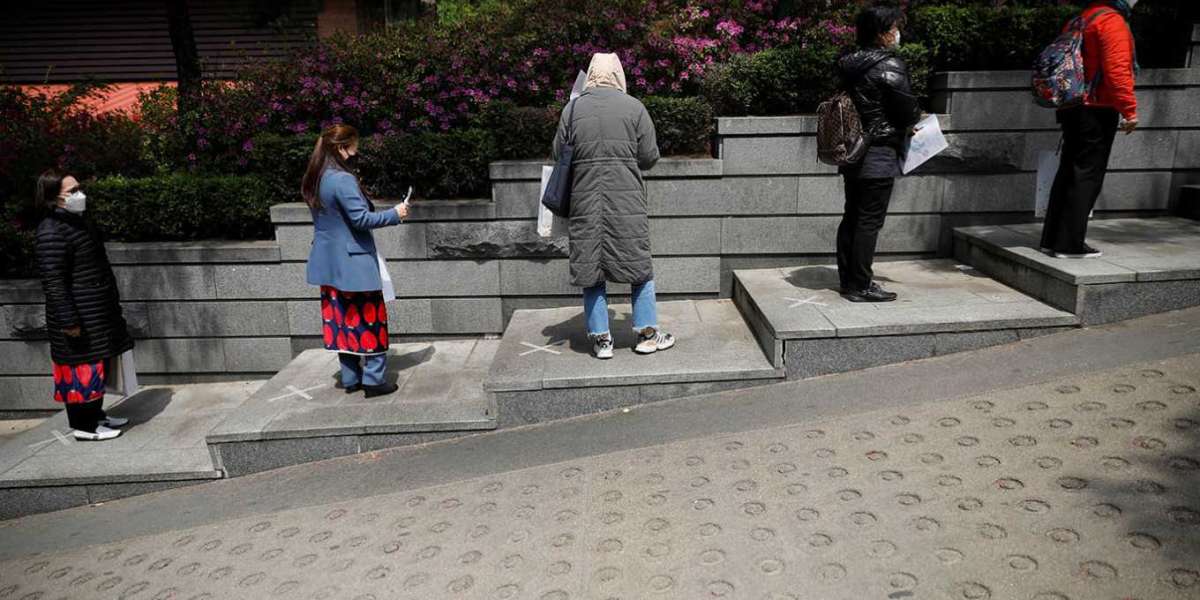Korea's daily new Covid-19 infections reached a new high of over 8,000 on Wednesday, setting a new high, while critical cases also established a new high, continuing to approach 1,000.
As Covid-19 spreads, authorities finally opted to reverse its return to normalcy and restore to its considerably tougher social distancing restrictions.
The Korea Disease Control and Prevention Agency (KDCA) reported 7,850 new Covid-19 cases on Wednesday, an increase of 2,283 from the previous day, bringing the total number of cases to 536,495. This was the highest single-day total of new Covid cases since the country's first patient was seen on January 20, 2020.
In less than two months, the daily number of new cases increased roughly 4.7 times compared to the figure on Nov. 1 — 1,684 instances — when the country initially began its "Living with Covid-19" campaign.
In keeping with the rising number of daily cases, the number of critically sick patients exceeded the 900 mark the previous day with 906 and surged again to 964 — a threefold rise from the previous day's 343. The infection killed 69 more individuals, increasing the total death toll to 4,456.
With the epidemic increasing, the government decided to abandon its plan for a gradual return to regular life in favor of more aggressive social separation.
Prime Minister Kim Boo-kyum said at Wednesday's viral response meeting that the administration regards the present virus situation as "extremely severe," and that the government "plans to undertake even tougher social distancing measures."
On Thursday, the authorities are expected to publish further public health precautions that will be in effect for the next two weeks.
The government is reportedly considering limiting social gatherings in the greater Seoul area to four people from the current six in the capital area or eight elsewhere, as well as forcing businesses to close at 9 p.m. or 10 p.m. — similar to the Level 4 measures under the previous social distancing scheme.
"If the measures are adopted," the prime minister said, "we will also come up with acceptable compensating measures for small company owners and self-employed persons who will once again suffer the weight."
Meanwhile, some argue that the administration has already passed the "golden hour" for containing the virus's spread, given the government's significant delay in executing the "exceptional steps" that it had previously stated.
In response to such criticism, Son Young-rae, senior epidemiological strategist at the Central Disaster Management Headquarters, stated in a press conference on Wednesday that stricter separation "is effective for public health but the social cost to bear is also quite high," adding that "there is a lot to reflect on prior to making the decision."
With the country on high alert for the highly transmissible Omicron strain of Covid-19, Korea has extended its 10-day mandatory quarantine restriction for all foreign visitors until January 6.
In addition to the quarantine extension, Korea would block its borders to eleven African nations, including South Africa, for another three weeks.
From December 3 through Thursday, Korea strengthened immigration controls and forced all overseas arrivals to be quarantined for 10 days regardless of vaccination status. However, due to a lack of knowledge on the severity of Omicron, as well as its relatively quick transmission and global dissemination, authorities prolonged the restrictions.
Korean natives and foreigners on long-term visas will be able to isolate at home, but foreigners with a stay of 90 days or less will be required to quarantine at a government-designated temporary residential facility. They must take three Polymerase Chain Reaction (PCR) tests in total: before entry, on the first day following entry, and before being released from quarantine.
Quarantine exemptions will still be granted in certain cases, such as individuals attending a funeral within seven days and those required to conduct executive-level public tasks. Exemptions for family visits or commercial purposes will no longer be given, according to health officials.
People arriving from countries that have signed a travel-bubble agreement, such as the Northern Mariana Islands, where Saipan is located, and Singapore, are exempt from quarantine, and the government plans to supplement antivirus measures, such as strengthening requirements for negative PCR test results.
Foreigners entering Korea for short-term visits from one of 11 African nations will be denied entry until January 6. South Africa, Nigeria, Ghana, Zambia, Botswana, Zimbabwe, Namibia, Lesotho, Eswatini (previously Swaziland), Mozambique, and Malawi are among the nations involved.
Korean nationals and foreigners with a stay of more than 90 days who arrive from the listed countries may still enter the country, but must isolate for 10 days at a temporary residential facility and undergo four PCR tests — before entry, the first day after entry, the fifth day after entry, and before release from quarantine.
Direct flights to and from Ethiopia, Korea's only direct aviation link with Africa, would be stopped until January 6, owing to increased worries over the new type.
The government intends to provide charter aircraft for Korean nationals returning from Ethiopia.
Following a meeting to examine ways to combat the spread of Omicron, the government and the Central Disease Control Headquarters announced the decisions in the afternoon on Tuesday.
As of Tuesday midnight, the country had added nine more Omicron cases, bringing the total to 128.



